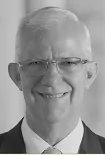WHO SHOULD READ THIS
- Current and interested participants in the renewable energy space in Queensland.
THINGS YOU NEED TO KNOW
- The Queensland Government has announced its commitment to the Renewable Energy Target (RET) and its proposal for improved coordination of large-scale renewable energy projects across Queensland and between states to achieve the target.
The Queensland Government has made some major announcements in recent days which will further promote the uptake of renewable energy in Queensland.
The new strategy heralds positive signs for renewable energy developments, and proposes improved coordination of large-scale renewable energy projects across Queensland and greater interconnectivity between state jurisdictions.
Background
Committed and proposed renewable energy projects in Queensland would generate only half of the energy required to meet the State's proposed 50% renewable energy target by 2030.
To help deliver on its renewable energy commitments, the Queensland Government established an independent expert panel to:
- investigate and report on credible pathways towards reaching the 50% target by 2030, and
- set out how the target and other complementary policies can drive the development of a renewable energy economy for Queensland.
The expert panel's final report was delivered on 30 November 2016 and the Queensland Government released its response yesterday.
The Government also announced its Powering Queensland Plan and Powering North Queensland Plan, intended to place downward pressure on electricity prices, facilitate jobs and investment and lead Queensland's transition to a low-carbon electricity sector.
Importantly, the Queensland Government has identified measures to facilitate investment and development of renewable energy projects in Queensland for implementation by 2020 and will further consider its renewable energy policy in 2019, following completion of the Finkel Review and the national review of climate change.
Key action
Key actions and initiatives identified in these plans include:
- confirmation of the Queensland Government's commitment to a 50% renewable energy target by 2030
- feasibility study for development of strategic transmission infrastructure in North and Northwest Queensland to support a 'clean energy hub' and connect a number of wind and solar energy projects
- a reverse auction for up to 400 MW of renewable energy capacity, to commence in the second half of 2017
- a feasibility study to assess options for deploying new hydro and pumped storage generation capacity in the state, and
- upgrading the Burdekin Falls Dam and development of the Burdekin hydro power project.
The reverse auction will focus on bringing forward solutions that support low emissions target system security and will deliver 100 MW of energy storage. It will be interesting to follow how the Government proposes to incorporate energy storage as part of the reverse auction policy.
In response to the Renewable Energy Panel's recommendation to investigate the concept of renewable energy hubs or zones, the Queensland Government has endorsed this concept and points to the study of strategic transmission in North Queensland and Northwest Queensland as well as investigations into the use of surplus State land for large scale renewable energy projects such as Aldoga.
A centralised web portal will be developed in the second half of 2017 to provide an integrated information service for renewable energy project proponents. The government also intends to work with stakeholders to develop best practice guidance material on project planning and development. This material will assist industry and stakeholders to have a common understanding of best practice, and ensure that strategic land use considerations are factored into the planning process.
The Government says it will consider establishing a separate "CleanCo" generator to operate renewable and low emissions generation assets and develop new renewable energy projects.
Also proposed is the establishment of the Queensland Energy Security Taskforce, which will be chaired by former Energex CEO, Terry Effeney. The taskforce will focus on:
- system security during high demand periods over 2017/2018 and 2018/2019 summers
- deployment of new hydro and pumped storage projects
- transmission infrastructure for a clean energy hub in North Queensland and Northwest Queensland, and
- expanding interconnection between Queensland and other states.
This package of announcements may be the Government's final word on its renewable energy strategy for the time being. The Government has stated that it will further consider its renewable energy policy in 2019, following the completion of the Finkel Review and the review of national climate change policy.
However, the COAG meeting on 9 June may well result in clarity on Federal energy and climate change policy much sooner than the Queensland government had imagined.





